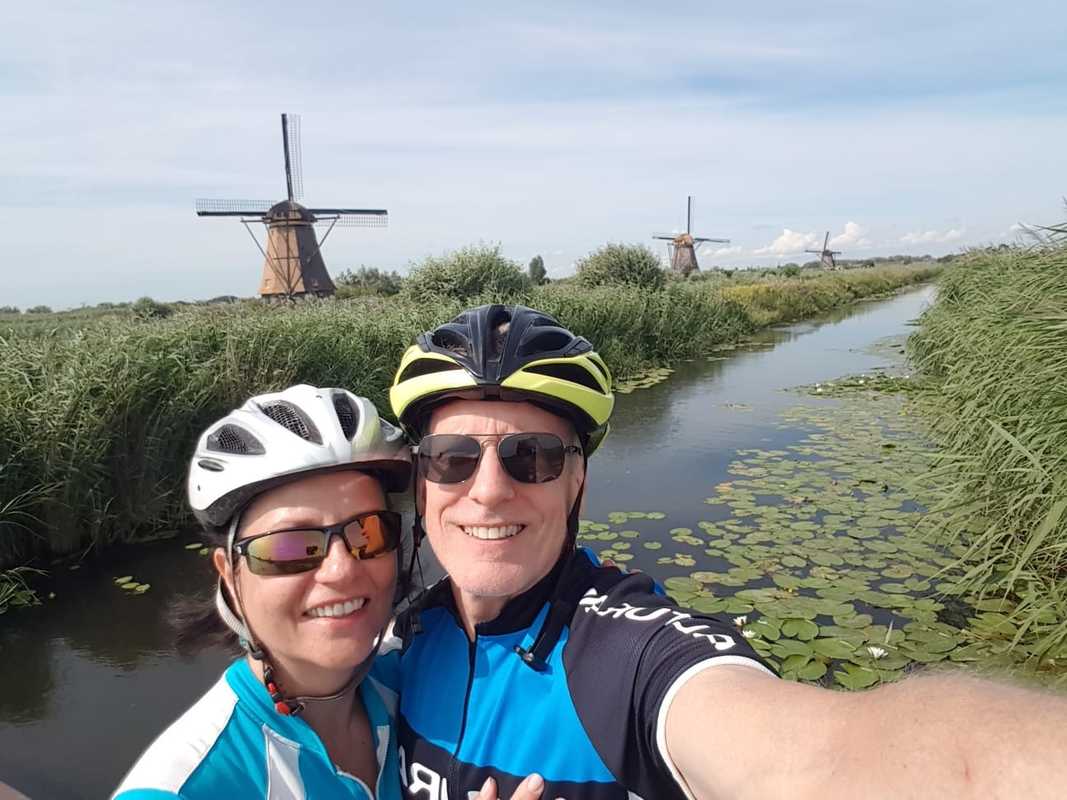We cycled on average 60 miles a day, some days more, some days less. The longest daily ride was 75 miles. What I came to appreciate is that my career prepared me well for the physical and mental challenge of such an adventure
Here of the five key skills or mindsets I identified as having been developed in my professional life which supported my long-distance cycling:
1. Solving problems - The original plan was to take a train from Brussels to Andermatt, Switzerland, the source of the Rhine. Due to maintenance work on the regional train lines, it was not possible to take a bicycle fully assembled on the train. After much discussion with the unfriendly staff at Brussels train station we learned that there were regional trains running as normal to Rotterdam. We ended up starting in Rotterdam & following the Rhine route to Germany where we then crossed over to the Danube.
2. Playing to my strengths - My navigation skills are quite poor. I relied on hubby for that. On the other hand, my foreign language skills and ability to be resourceful and ask for help are quite strong. I was in charge of booking the night's accommodation, checking us in and negotiating with the hotel owners for a fan (it was in the upper 30's for almost the entire trip!) You can't be an expert at everything. Focus on what you do best.
3. Accepting that not all days can be brilliant - You shouldn't make a decision about a job, or a career or other important decisions based on one bad day. We all have them – that's life! When stepping back, the trip was brilliant. On one individual day, or one individual moment, I may have preferred being somewhere else. One particularly hot day we were cycling in Switzerland. It was a Sunday and we struggled to keep hydrated as everything seemed to be closed. Deep breath…tomorrow will be better..
4. Doing proper research and preparation – While we didn't research every part of the trip (there's never enough time to do all the preparation you'd like to do), we did ensure our fitness levels were good and that we packed a few key essential items for the trip, leveraging the knowledge of our neighbour who has decades of cycling experience. Collaborating and networking tend to yield the short cuts. Like a colleague's advice, our neighbour's advice saved us many hours of research.
5. Prioritising based on desired outcomes – Start at the end. Over dinner each evening we discussed what our goal would be for the next day. Which city did we want to end up in at the end of the day's ride? Based on that, we then had to plan our entire day so that we could arrive in the town at a sensible hour. We needed to ensure we struck the right balance between seeing the sites we wanted to see, avoiding bad weather where possible & ensuring we had decent access to food and water based in the size of towns we were cycling through. And after four weeks literally on the road, I came home with a renewed sense of confidence. I'm not sure what challenges life is going to throw at me, but I feel ready! We are now thinking about our next cycling adventure… Washington State to California?
For more information about cycling routes in Europe: http://www.eurovelo.com/en/eurovelos


 RSS Feed
RSS Feed